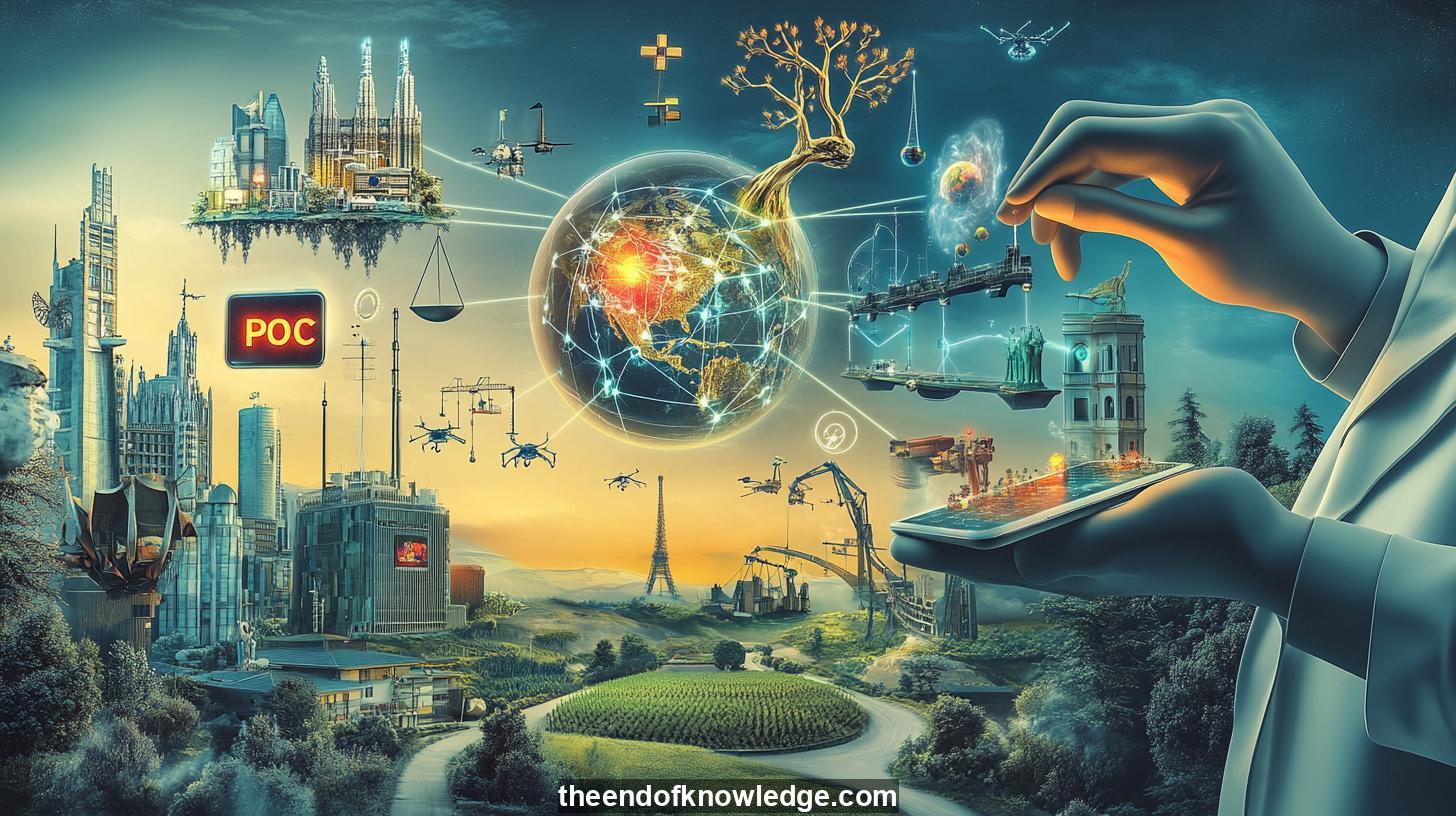 >
>
Concept Graph, Resume & KeyIdeas using DeepSeek R1 :
Resume:
Santiago Colomo, a seasoned professional in the technology sector, shared his insights on the transformative power of artificial intelligence (AI) and its impact on various industries during an interview. With a career spanning multiple sectors, both public and private, Santiago emphasized his curiosity-driven approach to learning and adapting to new technologies. He highlighted AI as a game-changer, particularly in sectors like tourism and healthcare, where it can drive efficiency and innovation. Santiago also discussed the challenges of implementing AI projects, such as the need for proof of concept, ethical considerations, and the importance of explainability in AI systems. He underscored the role of talent and collaboration in driving technological advancements, particularly in regions like Alicante, which he believes has the potential to become a technological hub in Spain. Santiago also touched on the importance of regulation and the need for a balanced approach that fosters innovation while addressing ethical concerns. Overall, his discussion painted a picture of AI as a disruptive force with immense potential, provided it is harnessed responsibly and strategically.30 Key Ideas:
1.- Santiago Colomo is a technology professional with extensive experience in both public and private sectors.
2.- He emphasizes curiosity and continuous learning as key drivers of his career in technology.
3.- Artificial intelligence (AI) is highlighted as a transformative force across industries.
4.- Santiago believes AI can revolutionize sectors like tourism and healthcare by enhancing efficiency and decision-making.
5.- He stresses the importance of proof of concept (POC) in validating AI solutions before full-scale implementation.
6.- Ethical considerations, such as bias and privacy, are critical in the development and deployment of AI systems.
7.- Explainability of AI models is essential for building trust and ensuring accountability.
8.- Santiago discusses the challenges of working with complex, atypical AI projects that require interdisciplinary expertise.
9.- He mentions the importance of pilot projects to test AI solutions in real-world scenarios.
10.- The tourism sector can benefit from AI through personalized marketing and predictive analytics.
11.- Santiago highlights the potential of AI in smart cities for improving urban planning and resource management.
12.- He notes the growing importance of AI in agriculture and aquaculture for optimizing processes and sustainability.
13.- Legal tech is another sector where AI can make a significant impact, particularly in automating routine tasks.
14.- Santiago emphasizes the need for collaboration between public and private entities to drive technological innovation.
15.- He believes Alicante has the potential to become a technological hub in Spain, driven by its growing talent pool.
16.- The decentralization of talent and the rise of remote work are reshaping the tech landscape in regions like Alicante.
17.- Santiago stresses the importance of fostering a collaborative ecosystem to compete with larger tech hubs like Madrid.
18.- He advocates for a multidisciplinary approach to AI development, combining technical expertise with domain knowledge.
19.- Santiago believes the future of AI lies in creating innovative, high-quality solutions that address real-world problems.
20.- He emphasizes the need for ethical regulation to ensure AI technologies are developed responsibly.
21.- Santiago highlights the role of education and training in preparing professionals for the challenges of AI adoption.
22.- He discusses the importance of cultural shifts in embracing innovation and overcoming bureaucratic hurdles.
23.- Santiago believes AI can empower smaller regions to compete globally by leveraging local talent and resources.
24.- He notes the importance of visibility and leadership in positioning Alicante as a tech hub.
25.- Santiago stresses the need for continuous investment in research and development to stay competitive.
26.- He believes the integration of AI in healthcare can significantly improve diagnostics and patient outcomes.
27.- Santiago discusses the potential of AI in optimizing resource management and reducing costs in various industries.
28.- He emphasizes the importance of data quality and accessibility in AI projects.
29.- Santiago believes the future of AI will be shaped by collaboration between academia, industry, and government.
30.- He concludes by highlighting the transformative potential of AI, provided it is harnessed responsibly and strategically.
Interviews by Plácido Doménech Espí & Guests - Knowledge Vault built byDavid Vivancos 2025